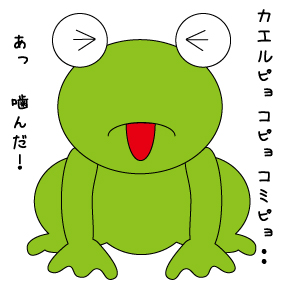When learning a second language, it is inevitable you will learn about the culture of that language. I always like finding cultural similarities between Japan and my place of birth, England. I previously wrote about dad jokes and oyaji gyagu, this time I will try tongue twisters.
A Tongue Twister is either a phrase or a verse designed to be difficult to say correctly. I am pleased to discover that this wordplay exists here in Japan as 早口言葉 (hayakuchi kotoba).
Although I do not always understand what the hayakuchi kotoba means, I have found it helpful in my learning to pick out the vocabulary I do know, even if it’s only a particle or two. Below are a few that get my tongue in a twist!
That is easy for you to say!
裏庭には二羽庭には二羽鶏がいる。uraniwa ni wa niwa, niwa ni wa niwa niwatori ga iru. (In the back garden there are two chickens, in the front garden there are two chickens.)
ブタがブタをぶったのでぶたれたブタがぶったブタをぶった。buta ga buta o butta node butareta buta ga butta buta o butta. (The pig beat the pig therefore, the beaten pig beat the beater pig.)
スモモも桃も桃のうち。sumomo mo momo mo momo no uchi. (both Japanese plums and peaches are a kind of peach.)
Brilliant, challenging, confusing and, sort of, helpful. Japanese pronunciation and English pronunciation have a few different sounds to each other. Because of this, when reading these words aloud, I am more mindful of my pronunciation of these words. Also, as I am focusing on each word, I am mindful of the meaning of each word. If I say it wrong, that’s okay as it is a hayakuchi kotoba after all!
English Tongue Twisters
As a child, I learnt these Tongue Twisters that I have never forgotten. I had difficulty saying them then and sometimes, even now.
Red lorry, yellow lorry. (repeat several times)
She sells seashells on the seashore.
Around the rugged rock, the ragged rascal ran.
How nostalgic for me trying these tongue twisters again. How did you do?
Just for fun?
Can you learn English by only using Tongue Twisters? No, as you can see, they do not make much sense nor have a real-life application. Tongue Twisters are difficult to say aloud, although, with practice, they can:
- Improve pronunciation and enunciation
- Improve flow of speech
- Improve memory
- Improve reading
They do exercise your mouth, and as English has different sounds to Japanese, they can exercise muscles in the mouth you never knew you had. Nevertheless, they are also fun to try and, Masami & I want you to have fun learning English.
【あなたの心が伝わるあなただけの英語】
英語でのコミュニケーションをあなたらしい英語で。一人一人のレベル、能力、興味に合った教材や方法での英語レッスンプログラムをオンラインで学べます。

”あなたの英語”でコミュニケートしたい方は、まずは無料カウンセリングをご予約ください。



